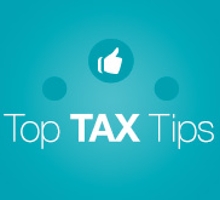Small Business, Enterprise and Employment Bill Summary
 The Small Business, Enterprise and Employment Bill has been drawn up to “reduce the barriers that can hamper the ability of small businesses to innovate, grow and compete,” with the overarching role of the bill designed to remove and reduce unnecessary regulation that gets in the way of doing business.
The Small Business, Enterprise and Employment Bill has been drawn up to “reduce the barriers that can hamper the ability of small businesses to innovate, grow and compete,” with the overarching role of the bill designed to remove and reduce unnecessary regulation that gets in the way of doing business.
Leading the Bill, Matthew Hancock, Minister of State for Skills and Enterprise claimed in an online video to be “excited to be leading a bill that puts small business right at the heart of the Government agenda.”
We’ve briefly summarised measures included in the Bill below:
Read more
What is an ISA? What do the new ISA Rules Mean?
 Most of us have heard of an ISA (Individual Savings Account) even if we’ve never opened one, but what exactly is an ISA, and why would you want to invest in one?
Most of us have heard of an ISA (Individual Savings Account) even if we’ve never opened one, but what exactly is an ISA, and why would you want to invest in one?
Simply put, an ISA is something of a tax wrapper that you can place around a particular account in order to shelter the contents from further income tax or capital gains tax. Because the contents of your ISA won’t be subject to taxation within the ISA itself, the government sets limits on how much you can place into your ISA over a twelve-month period.
As of 1 July 2014, the tax-free ISA limit has increased to £15,000 and there is no restriction on how you invest this; either as cash or shares or a combination of the two - you can decide the amount to be invested in each (up to a limit of £15,000 a year).
Research and Development Relief | R&D Relief
 If you’re the owner of a small to medium-sized enterprise (SME), or indeed a much larger company, you may be able to receive Research and Development Relief to reduce your Corporation Tax (CT) when undertaking qualifying revenue expenditure in an Research and Development (R&D) project that’s related to your company or organisation’s trade, or a trade that you’re looking to expand into.
If you’re the owner of a small to medium-sized enterprise (SME), or indeed a much larger company, you may be able to receive Research and Development Relief to reduce your Corporation Tax (CT) when undertaking qualifying revenue expenditure in an Research and Development (R&D) project that’s related to your company or organisation’s trade, or a trade that you’re looking to expand into.
Many conditions must be met by your R&D project for you to qualify for this relief, all of which are outlined in the ‘criteria’ section below. Please note that your company must already be paying Corporation Tax for you to claim R&D Relief.
Read more
Statutory Maternity Pay (SMP) Explained
 If you’re a small to medium-sized (SME) business owner, at one point, if it hasn’t happened already, one of your employees is going to tell you they’re soon to be expecting the pitter-patter of tiny feet.
If you’re a small to medium-sized (SME) business owner, at one point, if it hasn’t happened already, one of your employees is going to tell you they’re soon to be expecting the pitter-patter of tiny feet.
Once you’ve finished congratulating them there’s a good chance you’ll find yourself wondering what on Earth you’re supposed to do next. You’re not alone. If you don't know where to start when it comes to this area, here’s a brief overview of Statutory Maternity Pay (SMP) from the point of view of you, the employer.
Read more
Change Your Accountant in 3 Easy Steps
 Don’t you hate feeling you’re locked into working with a company that no longer suits your needs, or simply isn’t performing to the high standards you (rightly) demand of them?
Don’t you hate feeling you’re locked into working with a company that no longer suits your needs, or simply isn’t performing to the high standards you (rightly) demand of them?
Here at TaxAgility, we believe our quality of services and the professionalism and experience of our accountants should speak for themselves. For this reason, we don’t charge our clients transfer or termination fees should they wish to stop working with us. We’re sorry to see you go, but we respect your decision with grace; and without putting you out of pocket.
If you’re a self-employed contractor, or a small to medium-sized (SME) business owner, and you’re considering changing your accountant (whether to TaxAgility or any other experienced accountancy firm) below we’ve detailed three easy steps to doing exactly that:
Read more
4 Ways for Contractors to Negotiate Better Rates
 We all want to be paid more for what we do, with contractors and freelancers, such as yourself, being in a better position than any of us to negotiate your way to the top.
We all want to be paid more for what we do, with contractors and freelancers, such as yourself, being in a better position than any of us to negotiate your way to the top.
Whether you’re a freelance photographer, electrical contractor, or the owner of a small service business, the below negotiation tactics should put you in a position to negotiate better rates in no time. Keep in mind, the higher rate you choose must be justified. It’s only fair that you’re paid a reasonable figure for each job (see point one), but it’s equally fair that your clients aren’t overpaying for the service you’re providing.
Our negotiation tactics for contractors and small service business owners are as follows:
Read more
Tax Tips and News for July 2014
This issue … RTI Penalty Notices; VAT on Digital Services; PAYE Reconciliations; Scary Letters; July Questions and Answers; July Key Tax Dates
Real Time Information (RTI) Penalty Notices
As an employer you may have received an RTI penalty warning letter accusing you of not submitting all of the RTI returns required for 2013/14. However, that letter may be incorrect.
HMRC has admitted that its computer has churned out inappropriate penalty warning letters to employers who have submitted employer payment summaries (EPS) during 2013/14. If you have submitted all the required RTI returns for the tax year you can ignore the warning letter, as a penalty will not be charged.
This "cry wolf" by HMRC sets a dangerous precedent, as you may be inclined to ignore further RTI penalty warning letters that could be issued later this year.
From October 2014 new penalties come into effect where the monthly full payment submission (FPS) is submitted late, or an EPS is not submitted where an FPS is not required as no payments are made. If or when those new penalties arrive you will be able to appeal against the penalty online. Note this online appeal system is not up and running yet.
From October 2014 the FPS will contain a new box that allows you to tell HMRC why the FPS is apparently late, perhaps because you are taking advantage of the concession for payrolls with nine or fewer employees.
The EPS will also be changed in October so it will relate to a particular tax month. This will avoid the need to file the EPS in the window of 20th of the current month to 19th of the following month to ensure it is applied by HMRC to the appropriate tax month.
VAT on Digital Services
Do you sell digital services such as: music or software downloads, e-books or online videos? If so, do you know where your customers are, and whether they are businesses or individuals?
From 1st January 2015, when you sell digital services across international borders you will have to collect information about your customers to determine if they are businesses or not, and where they are based. Where your international sale is to a non-business customer, from 2015 you will have to charge that customer VAT of the country where he or she is located (if that's in the EU). You will also have to register for VAT in your customer's country. This is because the VAT threshold for traders selling into other EU countries is zero.
Many music and software creators are suspicious of the large online stores such as iTunes, and want to sell their tunes or games directly to their customers. If you sell through a large online store, that store sorts out the VAT so you don't have to worry about it. However, if you sell your digital product directly to non-business customers who are located in other EU countries from 1st January 2015, you must deal with the VAT consequences.
The easiest way to do this will be through the HMRC website under a system called VAT-MOSS. This system goes live from October 2014, and it will allow you to account for VAT in all the EU countries you sell services to.
However, in order to use VAT-MOSS you must first be registered for VAT in the UK. If you are not already VAT registered, perhaps because your turnover does not exceed the UK VAT threshold of £81,000, you need to pick one of these options:
- register for VAT in the UK;
- stop selling digital services to non-business customers outside the UK; or
- sell only through online stores or other businesses.
We can help you make this choice and do the necessary registrations.
PAYE Reconciliations
If most of your income is taxed under PAYE (Pay As You Earn) you may soon receive a reconciliation of the income tax you have paid compared to the amount that was due to be paid for 2013/14. This calculation arrives on a form P800, which should be checked very carefully for errors and omissions. If mistakes are missed they can be carried forward for several years, resulting in escalating amounts of tax over or under-paid.
For example, the High Income Child Benefit Charge (HICBC) may be due where you earn over £50,000 and your family receives child benefit. But the HICBC will not be reflected in the P800 calculation, as HMRC can't accurately match child benefit claimants with the high earners in those families. If you believe you are due to pay the HICBC to claw-back the child benefit received, you need to register for a self-assessment and complete a tax return. We can help you with that.
Other common errors on the P800 arise from the changing value of taxable benefits, varying pension contributions, and estimated amounts of other income included in your PAYE code such as rents or interest.
If you have paid the right amount of tax under PAYE for 2013/14 you won't receive a communication from HMRC. If you have overpaid tax you should receive a cheque from HMRC within two weeks of the issue of the P800. Don't respond to emails promising a tax repayment - those are scams.
If the P800 shows you owe tax, that amount will normally be collected through your PAYE code for 2015/16. We can help you challenge the calculation if you think it's wrong, but we will need to see the P800 you have received, as HMRC don't send us a copy.
Scary Letters
Have you received a scary letter from HMRC lately? Perhaps all HMRC letters are scary, but this latest nudge-letter really takes the biscuit.
In it HMRC says the taxpayer's effective rate of income tax is lower than the average for taxpayers with similar levels of income. It goes on to suggest that there could be something wrong with the self-assessment tax return for 2011/12 and the taxpayer should check what they submitted for that year. Penalties and interest are mentioned, which would worry anyone - even those with nothing to hide.
Bear in mind the period in which the 2011/12 tax return can be investigated closed for most taxpayers on 31st January 2014. This means HMRC can't open an enquiry into your tax return for that year unless it discovers new information which was previously not disclosed.
HMRC sent these letters as part of a pilot to nudge non-compliant taxpayers into paying the right amount of tax. However, in this case HMRC made no attempt to screen out those taxpayers who have good reasons for paying a low proportion of their income in tax - for example because of a loss claim, gift aid donation, or pension contribution. HMRC did not read the disclosures on the tax return before pressing the send button.
If you receive a scary letter from HMRC, call us immediately. It may be another "test" by HMRC trying to squeeze more tax and penalties out of innocent taxpayers, but it could be more serious.
July Questions and Answers
Q. Our company's board has decided it needs some expert input to help with the next stage of expansion. We have approached an individual to act as a non-executive director. He wants to invoice us from his personal service company for that work, but I would rather pay him via our company's payroll. Which is the correct approach?
A. The work that individual performs through his personal service as an officer holder (i.e. director or non-executive director) is now subject to IR35, which means his company must apply PAYE and NIC to that income earned as a non-exec. The tax and NI the individual ultimately bears will be the same; whether his company invoices your company, or if your company pays him via its payroll. There is no "correct" approach.
Q. I am thinking of selling a flat that has been let since I acquired it in 2012. I do not own another property. My tenant is moving out soon, after which I will either stay in it myself or sell it. Will I get lettings relief to reduce the capital gains tax (CGT) payable?
A. Lettings relief only applies if you have lived in the property as your main home for some period. So if your tenant moves out and you sell the property immediately you will not get lettings relief, or any relief from CGT, other than the annual exemption.
However, if you move into the property and make it your own home, the gain relating to your period of occupation will be free of CGT. The last 18 months of ownership will also be free of CGT even if you are not living in the property during that period. The total gain on sale can also be reduced by lettings relief, which is limited to the lowest of these three amounts:
- the part of the gain which is exempt because the property was your main home;
- the gain attributed to the period it was let; and
- £40,000.
There are thus large tax savings to be made by occupying the property as your main home, but you must show that you intended the property to be a permanent residence, not a temporary occupation while the property was on the market. It is the quality of occupation not the length of time that demonstrates the property was your main home.
Q. I do some educational consultancy work in Africa for a business based in Ireland. My UK-based company will issue the invoice for that work, but it's in the flat rate scheme for VAT. Should that invoice be included in the turnover I apply the flat rate to?
A. The invoice your UK Company sends to Ireland for your work in Africa is outside the scope of VAT. You should not add VAT to that invoice, and you should exclude that invoice from the turnover used to calculate your flat rate payment of VAT for the quarter.
July Key Tax Dates
5 - Deadline for PAYE settlement agreement for 2013/14
6 - Deadline for 2013/14 forms P11Db, P11D and P9D to be submitted and copies of P11D and P9D to be issued to relevant employees
Deadline for employers to report share incentives for 2013/14 - form 42
14 - Return and Payment of CT61 tax due for quarter to 30 June 2014
19/22 - PAYE/NIC, student loan and CIS deductions due for month to 5/7/2014 or quarter 1 of 2014/15 for small employers
31 - Second self-assessment payment on account due for 2013/14
Second 5% penalty surcharge on any 2012/13 outstanding tax due on 31 January 2014 still unpaid
Deadline for Tax Credits to finalise claims for 2013/14 and renew claims for 2014/15
Half yearly Class 2 NIC payment due
Penalty of 5% of tax due or £300, whichever is greater for 2012/13 personal tax returns still not filed
We are committed to ensuring none of our clients pay a penny more in tax than is necessary and they receive useful tax and business advice and support throughout the year.
If you need further assistance just let us know – we're here to help!
Contact us today on 020 8780 2349 to discuss how any of the above affects your personal or business finances or get in touch with us via our contact page to arrange a complimentary, no-obligation meeting.
This blog is a general summary. It should not replace professional advice tailored to your specific circumstance.
What to Consider When Hiring an Employee
 Taking on an employee, whether as an individual or as the owner of an SME, can be somewhat of a daunting experience the first time you go about doing so, as there are numerous points you have to take into account to ensure you remain on HMRC’s good side.
Taking on an employee, whether as an individual or as the owner of an SME, can be somewhat of a daunting experience the first time you go about doing so, as there are numerous points you have to take into account to ensure you remain on HMRC’s good side.
We should note that you don’t have to be in business to be an employer. You may work a salaried position at a large corporation, but if you employ a housekeeper, nanny, or any other form of domestic staff within your home, you will be considered their employer.
Below we’ve compiled a condensed list of the core responsibilities you have when taking on a new employee, in a basic order of consideration:
Read more








